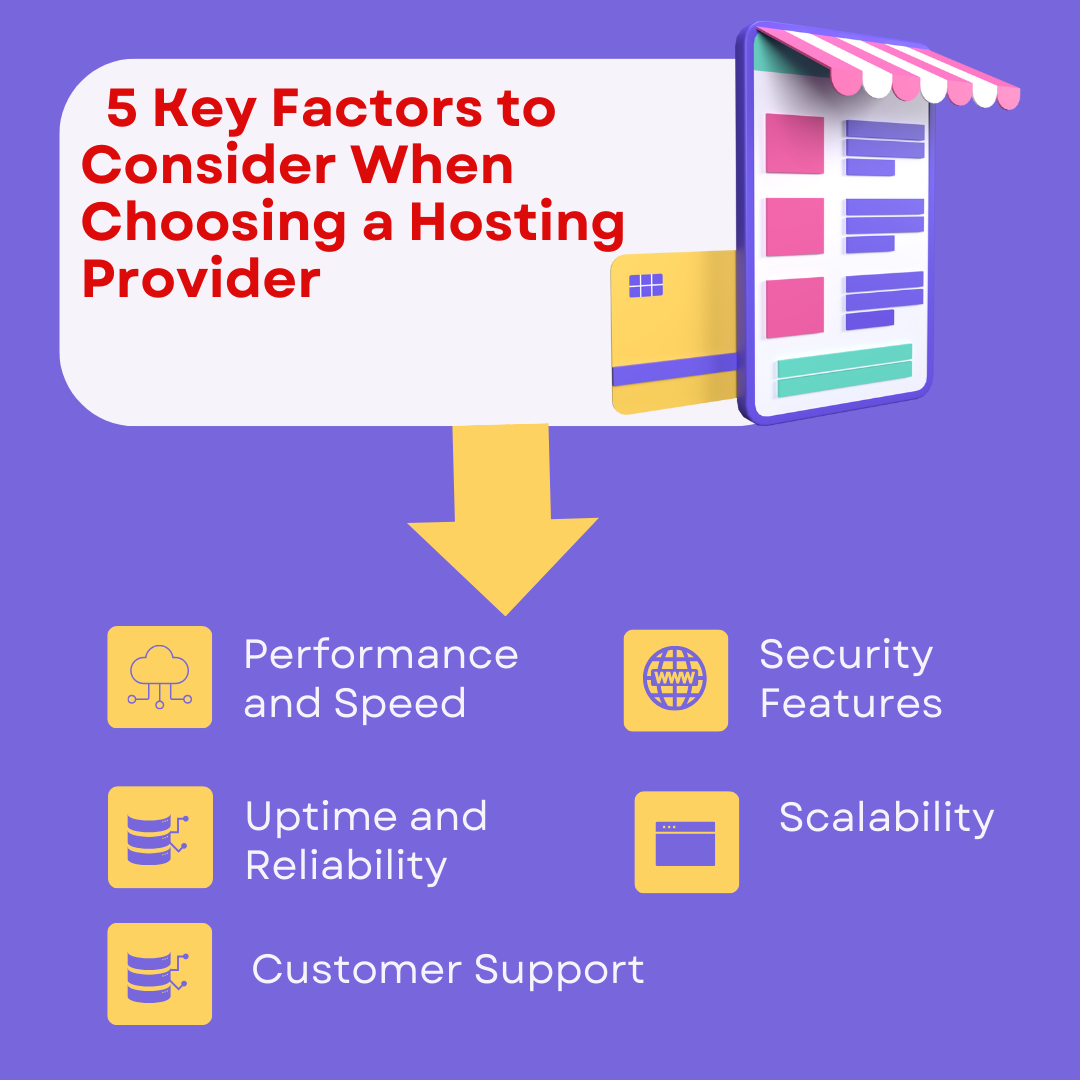
Selecting the right hosting provider is a critical decision for any online business or website owner. Your hosting provider is the backbone of your website, affecting everything from its performance and security to scalability and customer satisfaction. With numerous hosting options available, it can be challenging to determine which provider is the best fit for your needs. To help you make an informed decision, here are five key factors to consider when choosing a hosting provider.
1. Performance and Speed
One of the most important factors to consider when selecting a hosting provider is the performance and speed they offer. Website speed is crucial for user experience and search engine rankings. A slow-loading website can drive visitors away and negatively impact your SEO efforts. Therefore, it’s essential to choose a hosting provider that offers high-performance servers, solid-state drives (SSDs), and optimized infrastructure to ensure fast load times and smooth website operation.
Look for hosting providers that offer Content Delivery Networks (CDNs) and caching mechanisms, which can further enhance your website’s speed by distributing content across multiple servers worldwide. This is particularly important if you have a global audience.
2. Uptime and Reliability
Uptime refers to the amount of time your website is available and accessible to visitors. High uptime is crucial for maintaining your online presence and ensuring that your website is always available when potential customers are looking for your products or services. When evaluating hosting providers, check their uptime guarantees, which are typically expressed as a percentage (e.g., 99.9%).
A reliable hosting provider will have robust infrastructure, including redundant power supplies, backup systems, and data centers located in multiple geographic regions. These measures help minimize downtime and ensure that your website remains operational even in the event of technical issues or natural disasters.
3. Security Features
Security is a top concern for any website, especially if you handle sensitive customer data such as payment information or personal details. A good hosting provider should offer comprehensive security features to protect your website from cyber threats, including firewalls, SSL certificates, DDoS protection, and regular security updates.
Additionally, look for hosting providers that offer automatic backups, malware scanning, and recovery options. These features are essential for protecting your data and ensuring that your website can be quickly restored in case of a security breach or data loss.
4. Scalability
As your website grows, so will your need for additional resources such as bandwidth, storage, and processing power. It’s essential to choose a hosting provider that offers scalable solutions, allowing you to upgrade your hosting plan as your website’s demands increase. This scalability ensures that your website can handle traffic spikes and growth without experiencing performance issues or downtime.
Consider hosting providers that offer a range of plans, from shared hosting for small websites to dedicated servers or cloud hosting for larger, high-traffic websites. The ability to easily scale your resources as your business grows is crucial for long-term success.
5. Customer Support
Even with the most reliable hosting provider, issues can arise that require technical support. It’s important to choose a hosting provider that offers excellent customer support, available 24/7 through various channels such as live chat, email, and phone. This ensures that you can get help whenever you need it, minimizing downtime and disruptions to your website.
When evaluating hosting providers, consider their reputation for customer support by reading reviews and testimonials. A provider with a responsive and knowledgeable support team can make a significant difference in your overall experience and satisfaction.
Conclusion
Choosing the right hosting provider is a crucial step in establishing and maintaining a successful online presence. By considering factors such as performance, uptime, security, scalability, and customer support, you can make an informed decision that meets your website’s current and future needs. Remember, your hosting provider is the foundation of your website, so invest the time and effort to choose one that aligns with your business goals and ensures the best possible experience for your users.


